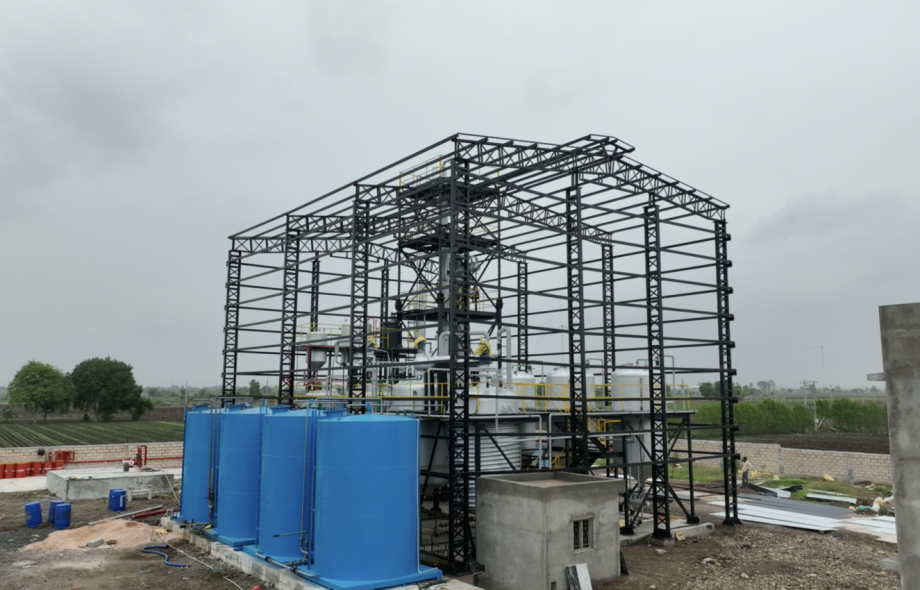As global concerns over climate change and environmental degradation intensify, the need for sustainable and cleaner energy solutions becomes more pressing. One such solution that has garnered significant attention is biodiesel, a renewable energy source derived from organic materials such as vegetable oils, animal fats, and even algae. Among the many environmental benefits of biodiesel, its ability to reduce carbon emissions stands out as one of its most compelling advantages. This article explores how biodiesel contributes to mitigating the impact of climate change, its advantages over traditional fossil fuels, and the role of biodiesel manufacturing in shaping a greener future.
What is Biodiesel?
Biodiesel is a type of renewable diesel fuel made from natural resources like plant oils, animal fats, and waste cooking oils. It is created through a process called transesterification, which involves chemically converting oils or fats into biodiesel and glycerin. Unlike petroleum-based diesel, which is derived from fossil fuels, biodiesel can be produced locally, reducing dependence on oil imports. One of the key benefits of biodiesel is its potential to lower the carbon footprint when used in place of conventional diesel.
Reducing Carbon Emissions with Biodiesel
One of the most significant contributions of biodiesel to the environment is its ability to reduce carbon emissions. Fossil fuels such as petroleum-based diesel release large quantities of carbon dioxide (CO2) and other greenhouse gases (GHGs) into the atmosphere when burned for energy. These emissions contribute to global warming, environmental pollution, and health problems related to air quality.
Biodiesel, on the other hand, offers a cleaner alternative. When biodiesel is produced, the plants or animals from which it is derived absorb CO2 from the atmosphere as part of their natural growth process. This means that when biodiesel is burned, the amount of CO2 released into the atmosphere is offset by the amount the plants absorbed during their life cycle. In essence, biodiesel forms part of a closed carbon cycle, making it carbon-neutral. According to studies, biodiesel can reduce carbon dioxide emissions by up to 78% compared to traditional petroleum-based diesel.
Lifecycle Emissions and Biodiesel Manufacturing
The reduction in carbon emissions is not just a result of biodiesel’s combustion. The biodiesel manufacturing process itself also plays a role in minimizing overall emissions. By utilizing waste oils and fats, the biodiesel industry helps to recycle materials that might otherwise contribute to environmental pollution. Moreover, advancements in biodiesel manufacturing technologies have led to the development of more efficient processes, reducing energy consumption and emissions associated with production.
Compared to the extraction, refining, and transportation of crude oil, biodiesel production generally requires less energy. For example, biodiesel made from waste cooking oil or animal fats further reduces its carbon footprint because it uses materials that would otherwise be discarded, preventing them from ending up in landfills or incinerators. This closed-loop system not only lowers emissions but also contributes to reducing waste.
Biodiesel and the Renewable Energy Transition
Biodiesel is a crucial player in the renewable energy transition. As governments and industries around the world strive to meet climate targets and reduce reliance on fossil fuels, biodiesel serves as a bridge to cleaner energy sources. In many countries, biodiesel is already being used as a blend with conventional diesel, reducing the overall carbon intensity of the fuel. For example, in the United States, biodiesel blends such as B20 (20% biodiesel, 80% petroleum diesel) are commonly used in both heavy-duty trucks and passenger vehicles.
By supporting the growth of the biodiesel manufacturing sector, governments can also foster the development of a local, sustainable energy industry. This can lead to job creation, economic growth, and greater energy independence, all while reducing the environmental impacts associated with fossil fuel extraction and consumption.
The Role of Companies Like Advance Biofuel
Companies such as Advance Biofuel play a vital role in advancing the benefits of biodiesel. Through their biodiesel manufacturing processes, these companies contribute to producing high-quality biodiesel that can significantly lower carbon emissions. By focusing on sustainable production practices and continuous innovation, companies like Advance Biofuel help to meet the growing demand for cleaner, more sustainable fuels.
Advance Biofuel also contributes to the broader environmental movement by educating consumers and industries about the advantages of biodiesel. By making biodiesel more accessible and affordable, companies are encouraging its use in both transportation and industrial applications, further helping to reduce the carbon footprint of various sectors.
Biodiesel’s Impact Beyond Carbon Emissions
While the reduction in carbon emissions is one of the most important benefits of biodiesel, it also offers several other environmental advantages. Biodiesel produces fewer harmful air pollutants, such as particulate matter, carbon monoxide, and sulfur oxides, compared to conventional diesel. This results in cleaner air, especially in urban areas where air quality is often compromised by vehicle emissions.
Additionally, the production and use of biodiesel encourage the growth of sustainable agriculture. By sourcing raw materials for biodiesel from crops like soybeans, canola, and algae, biodiesel production promotes agricultural diversity and supports rural economies. This also opens opportunities for the development of innovative biofuel crops that can thrive in different climates and environments.
Conclusion
Biodiesel is proving to be an essential tool in the fight against climate change by offering a cleaner, more sustainable alternative to fossil fuels. With its ability to reduce carbon emissions by up to 78%, its role in reducing waste, and its potential to drive renewable energy adoption, biodiesel is a key player in the future of energy. Biodiesel manufacturing companies like Advance Biofuel are at the forefront of this movement, producing cleaner fuels and helping industries transition toward a more sustainable and carbon-neutral future.
As demand for sustainable solutions continues to rise, the benefits of biodiesel in reducing carbon emissions cannot be overstated. It not only helps mitigate the effects of climate change but also promotes environmental sustainability and economic development, creating a more sustainable world for future generations.












